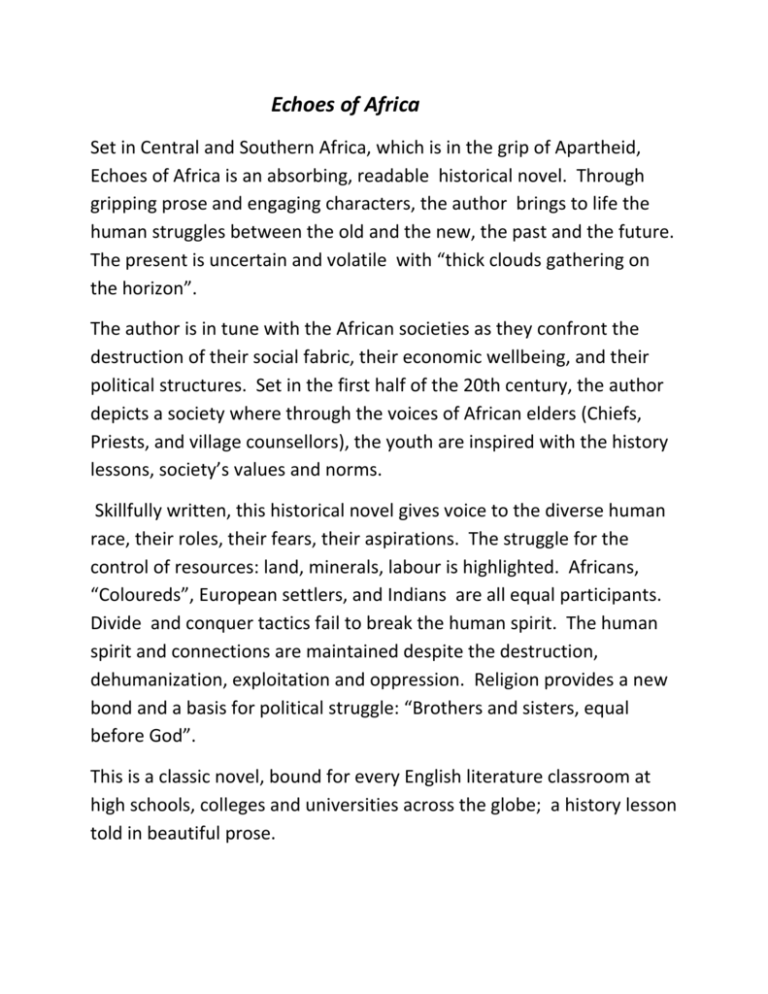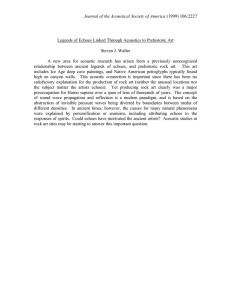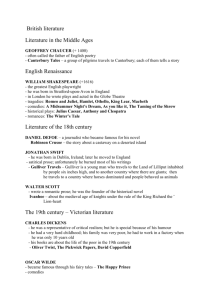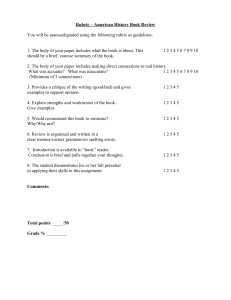Dr. Kakembo`s remarks.
advertisement

Echoes of Africa Set in Central and Southern Africa, which is in the grip of Apartheid, Echoes of Africa is an absorbing, readable historical novel. Through gripping prose and engaging characters, the author brings to life the human struggles between the old and the new, the past and the future. The present is uncertain and volatile with “thick clouds gathering on the horizon”. The author is in tune with the African societies as they confront the destruction of their social fabric, their economic wellbeing, and their political structures. Set in the first half of the 20th century, the author depicts a society where through the voices of African elders (Chiefs, Priests, and village counsellors), the youth are inspired with the history lessons, society’s values and norms. Skillfully written, this historical novel gives voice to the diverse human race, their roles, their fears, their aspirations. The struggle for the control of resources: land, minerals, labour is highlighted. Africans, “Coloureds”, European settlers, and Indians are all equal participants. Divide and conquer tactics fail to break the human spirit. The human spirit and connections are maintained despite the destruction, dehumanization, exploitation and oppression. Religion provides a new bond and a basis for political struggle: “Brothers and sisters, equal before God”. This is a classic novel, bound for every English literature classroom at high schools, colleges and universities across the globe; a history lesson told in beautiful prose. The author is patient, yet moves the reader forward at a terrific speed through private discussions, community meetings, clubs and events. There is turmoil – natural disasters, political riots and world wars. Despite all that, people maintain their dignity. There is hope for the future. There are elders educating the young through traditional ways and new ways; sending the future leaders to Mission schools and across the Oceans to European and American universities. Echoes of Africa has been a labour of love and, on behalf of everyone here, I would like to congratulate the author, Dr. Bridglal Pachai, for a job well done. Patrick Kakembo, Ph.D











